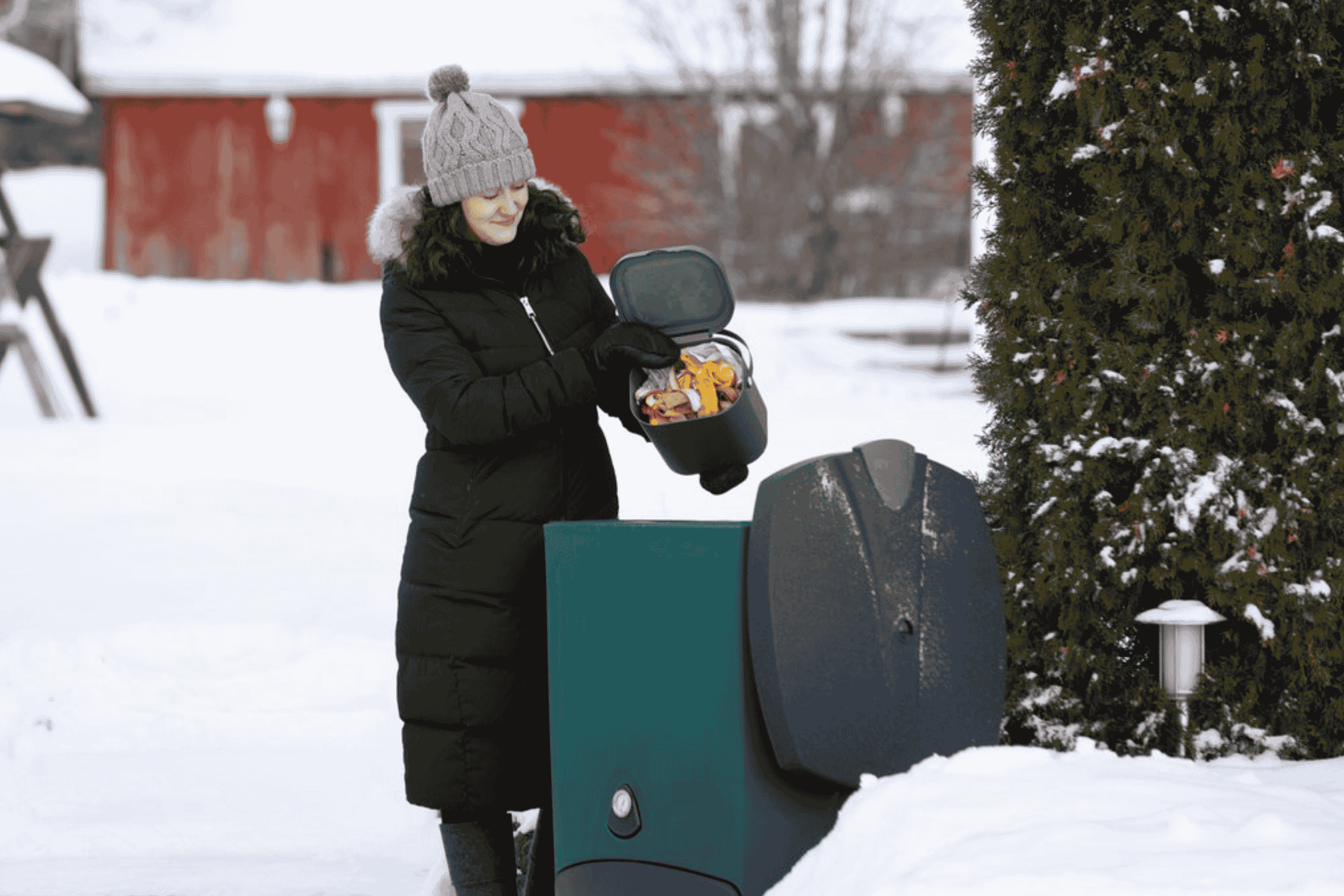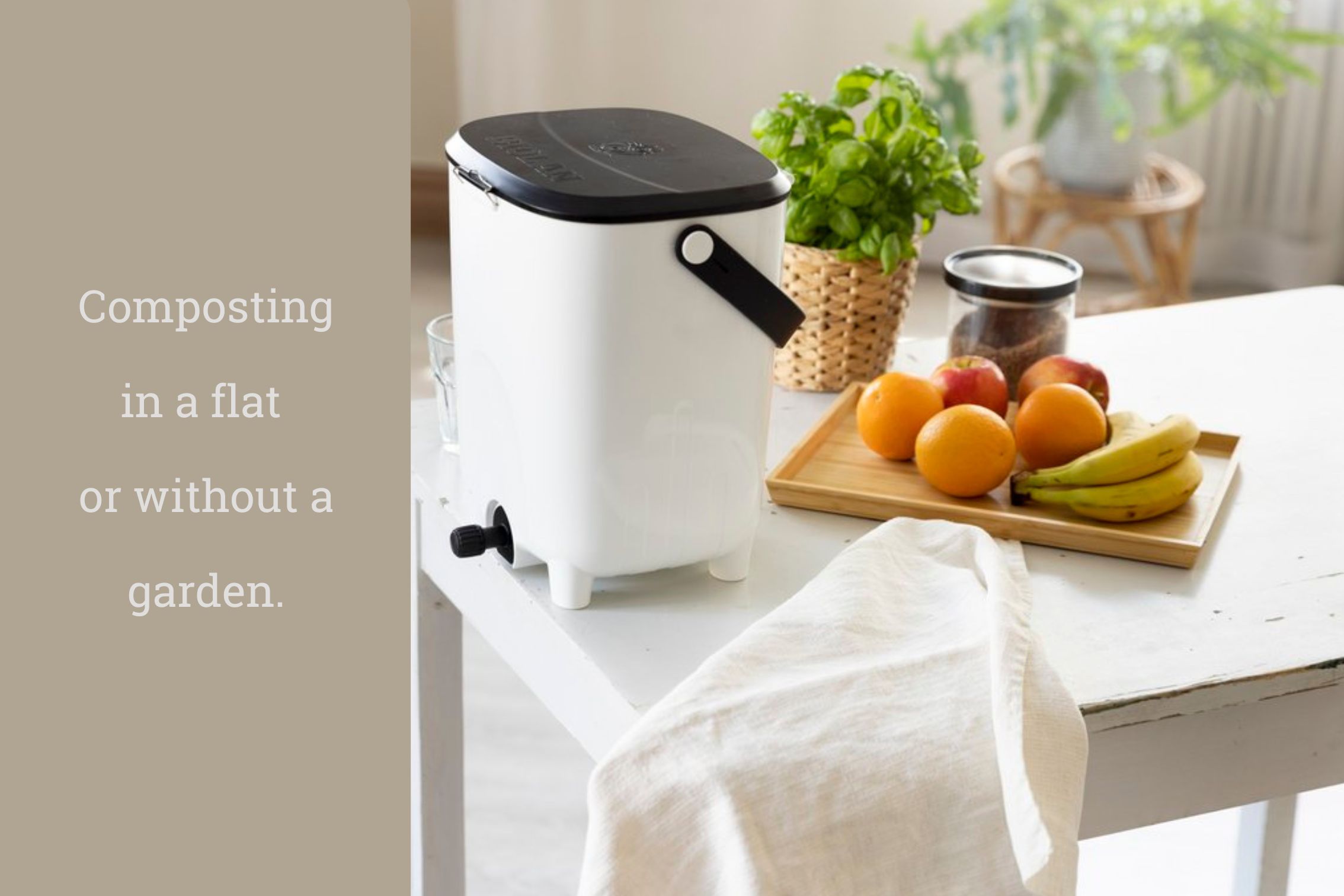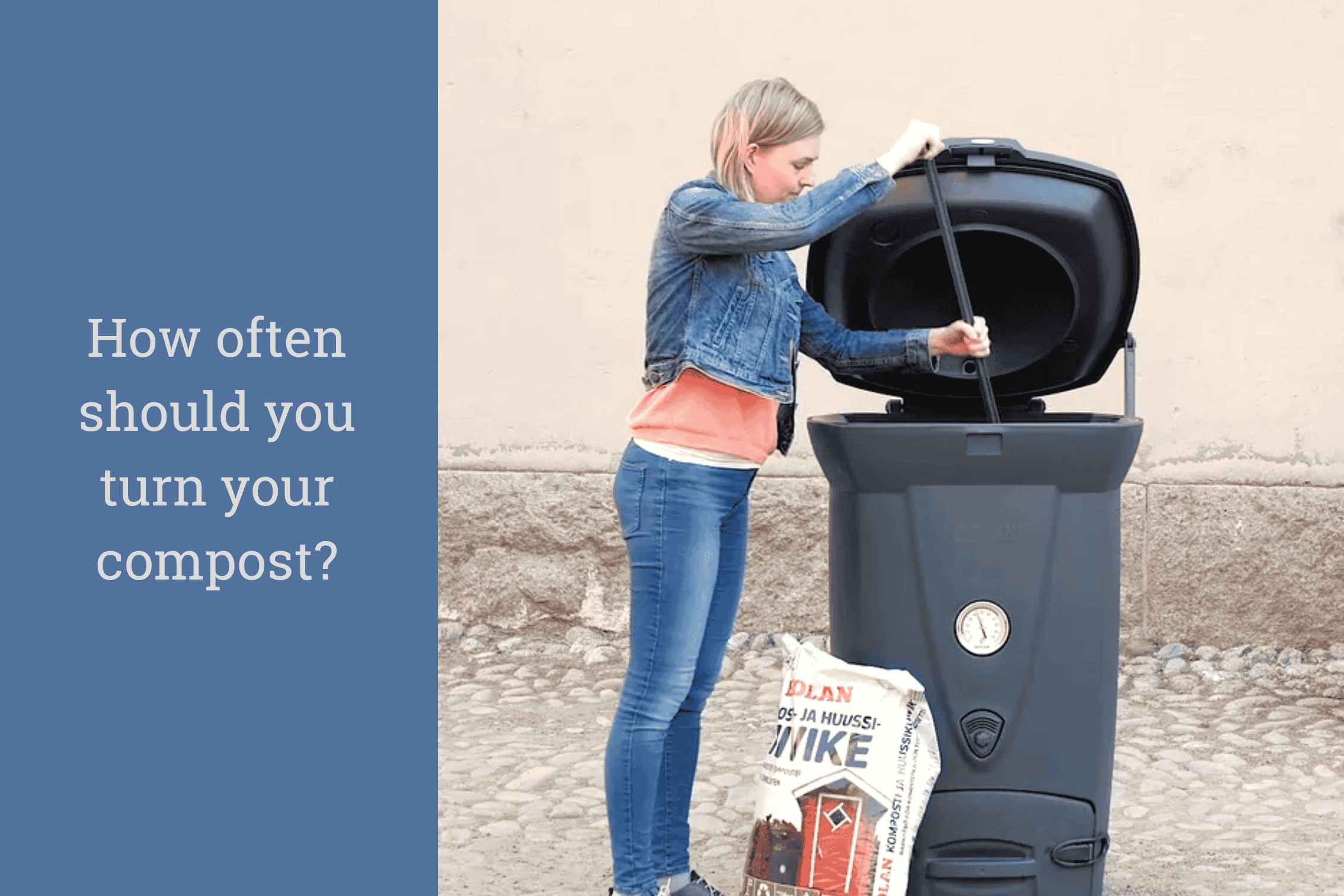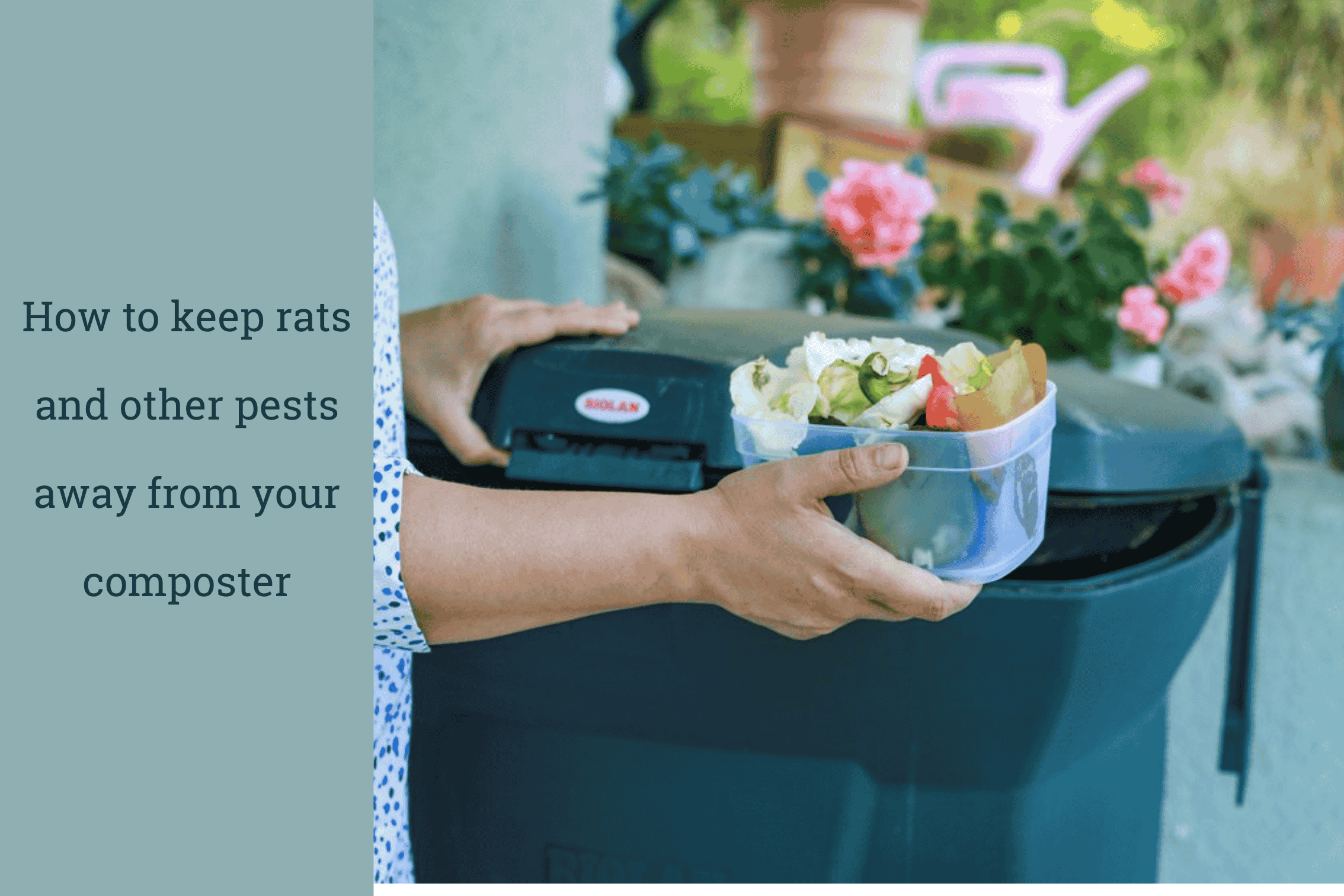
Can I Compost During the Winter Months in the UK?
Yes, you can compost in winter! Learn how to keep your bin active during the UK's cold months with tips, tools, and winter-ready composters.
British winters - cold, wet, and dark by 4pm, or earlier the farther north you live. The garden’s looking a bit sleepy, your breath fogs up the air, and you might be wondering: is composting even a thing in winter? The good news is, yes - you can compost all year round , even in the depths of a soggy UK December. But there’s a knack to it, unless you have an insulated composter.
The Winter Composting Challenge
Composting works thanks to bacteria, and other tiny decomposers breaking down your kitchen and garden waste into rich, dark, crumbly goodness. But these organisms aren’t fans of the cold. Once temperatures drop, they slow down, just like we do when we’re dragging ourselves out from under the bedcovers in January.
In traditional open compost heaps winter can seriously stall decomposition. Materials can sit for weeks, even months, barely changing. Not ideal if you’re keen to keep your green routine going all year.
Already Have a Homemade Compost Heap? Here’s How to Winter-Proof It
If you’ve already got a compost pile or a DIY bin don’t worry - you can keep it going through winter. It’ll just take a bit more TLC than an insulated unit.
Add Some Insulation - Your compost pile will stay active longer if it’s warm. Surround your bin with straw bales, old blankets wrapped in plastic. Like us, your compost likes to stay warm.
Cover the Top - A waterproof cover (like a tarpaulin) helps keep rain and snow out and the warmth in, so stops your pile from getting soggy.
Build Bigger - Larger heaps stay warmer in the middle. If you’ve got the space, pile it higher and wide. That thermal mass helps keep microbes active even in air frosty air.
Turn Occasionally - Even if it’s chilly out, give your pile a turn now and then. This mixes in fresh oxygen which microbes need to create heat. Just don’t overdo it or you’ll lose all the heat you’ve built up.
Thinking of Upgrading?
If you love composting but you’re tired of battling the elements every winter, investing in something like the Biolan Quick Composter 220Eco could be a game-changer. You’ll still get to feed your compost habit, but without the added concern of makeshift insulation and tarps.
Why the eco 220 Quick Composter is Perfect for UK Winters
1. Year-Round Composting (Even in Frosty Weather!)
Thanks to its thick, thermally insulated walls, the Quick Composter keeps the heat in and the compost cooking - even when the mercury’s heading south. That means proper decomposition in all seasons, not just spring and summer.
2. Aeration & Ventilation
Good compost needs air, even in winter. Biolan's Quick Composter composters are cleverly designed with adjustable ventilation that lets you control airflow without losing precious heat - which is key when the temperature dips.
3. Rodent-Proofing
Winter is when rats and mice go hunting for warm places and easy meals.An open heap can be an all-you-can-eat buffet. The 220Eco's tight-sealing lids and solid construction keep pests out and your compost safe.
4. Fast & Efficient Breakdown
With the right balance of greens and browns, you can produce finished compost in just a few weeks - not months.
5. Big Enough for Families
With a 220-litre capacity, it’s ideal for households with regular food and garden waste. You won’t be emptying it every five minutes, but it’s still compact enough to tuck into your garden space without it being the main focus of attention.
6. Easy to Use & Low Maintenance
Fill it, mix it, let it work its magic. There’s a drain grid for excess liquid and an accessible hatch at the bottom to remove finished compost easily.
Tips for Composting Through Winter in the UK
For better results with your composting here’s a few winter-specific tricks.
1. Keep Feeding It
It’s tempting to assume nothing’s happening in the cold, but regular additions - especially nitrogen-rich kitchen scraps - keep your compost “alive.” Think veg peelings, fruit cores, coffee grounds, and tea bags (the plastic-free ones).
2. Chop It Small
Smaller bits break down faster. Give your scraps a quick chop before chucking them in. That apple core? Halve it. Banana skins? Snip ‘em. Your compost will thank you later.
3. Balance Browns and Greens
In winter, we tend to produce more “greens” (food waste) than “browns”(dry materials like leaves, cardboard, and paper). Keep a stash of shredded paper or dry leaves nearby to layer with your food waste. This keeps your compost balanced and helps avoid soggy, smelly piles. If you have one of our composters then we have a ready made eco-friendly, peat-free bulking material which is perfect for adding everything your compost needs to keep it moist (not wet), oxygenated and warm
5. Check Moisture Levels
Rain, snow, and freezing fog can all mess with moisture levels. You want your compost to feel like a wrung-out sponge - damp but not dripping. If it’s too wet, add more browns (or bulking material) ; too dry, a splash of water (or add wetter food scraps).
What Not to Do in Winter
- Don’t overfill your bin too quickly - especially in extreme cold. Let the microbial party warm up first.
- Don’t put cooked food, meat, or dairy into your composter Otherwise, you’ll be rolling out the welcome mat for unwanted furry guests. If you have a sealed unit a small amount of cooked food is ok but try to add with plenty of bulking material for best results.
- Don’t forget it! Out of sight can mean out of mind, but composting is a year-round commitment.
Composting Isn’t Just for Summer
Winter composting in the UK is absolutely possible - and easier than you think with the right setup. Whether you’re a seasoned composting pro or a newbie just getting started, you’ll be rewarded with gorgeous, nutrient-rich compost ready to feed your garden. Happy composting!
Further reading:
Blog -What to put in a compost bin (and what to avoid)
OTHER POSTS IN THIS CATEGORY:

Yes, you can compost in winter! Learn how to keep your bin active during the UK's cold months with tips, tools, and winter-ready composters.

Tired of smelly bins? Learn how to compost in your flat usingan indoor Bokashi bins, and turn your scraps into garden gold - even without a garden.

Find out how often to turn your compost, why it matters, and simple tips to boost breakdown and reduce smells in your garden bin.

Keep pests out of your compost bin with smart tips on what to add, how to balance materials, and ways to seal and protect your setup year-round.
.png)
Insulated aerobic composters speed up decomposition, manage odour, and work all year. Learn how they retain heat, regulate airflow, and simplify compo
.gif)
Don't let bad smells put you off composting! A healthy compost bin should smell earthy. This post explains why compost gets stinky and how to fix it.



